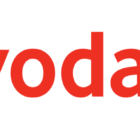
May 2023
mHITs (pronounced Em-HITS), the leading Australian FinTech mobile remittance pioneer, in partnership with Vodafone Fiji has launched a cross border remittance service between Fiji and Vanuatu.
In a regional first, the service will allow instantaneous cross border transfers between Vodafone M-PAiSA Fiji and Vodafone M-Vatu Vanuatu mobile money services.
“We are privileged to be able to participate in this wonderful initiative” says mHITs founder and CEO Mr Harold Dimpel. “Together with our partners Vodafone Fiji and assistance from the UNCDF, we are able to make a very positive impact on the region by allowing money to move more easily.” he continues.
mHITs has been working in the Pacific Islands for many years and has pioneered multiple first-to-market services in the region. This includes working with clients and partners including Digicel and Vodafone, but also via customer-facing services such as the multi-award winning remittance service Rocket Remit.
“Vodafone Fiji will add the international money transfer service to the growing suite of services available under its M-PAiSA digital wallet”, said Mr Shailendra Prasad Head of Vodafone Fiji eCommerce & Digital Financial Services. M-PAiSA currently brings into Fiji around FJD 35m in personal remittances every month from countries overseas.
Vodafone Fiji operates its award-winning M-PAiSA platform as M-Vatu in Vanuatu, M-Tala in Samoa, e-Moni in the Cook Islands and M-PAiSA in Kiribati. It plans to interconnect all these markets for inward and outward money transfer to make it convenient and less costly to send money across the Pacific.
Funding and technical assistance provided by UNCDF helped to catalyse the development of the solution and prepare it for market deployment.
Under the Pacific Digital Economy Programme, UNCDF aims to work with public and private stakeholders to build an ecosystem in the Pacific that enables digital financial services to reach and improve the lives of last-mile communities. The Programme is jointly implemented by UNCDF, the UN Development Programme (UNDP) and UN Conference on Trade and Development (UNCTAD), with support from the European Union and Government of Australia.
UNCDF Country Coordinator for Fiji, Yenlin De Silva mentioned, “This is a great outcome from the Fintech Challenge we organised last year as this initiative will bring about market change and help reduce the cost of remittances in the Pacific. We are grateful to the Australian Government for supporting us with this initiative.” she continues.
For more information on the Vodafone Fiji M-PAiSA service visit https://www.vodafone.com.fj/personal/products-services/m-paisa
about Vodafone Fiji
Vodafone Fiji Pte Limited is a 100% locally owned entity, of which 51% is owned by Amalgamated Telecommunications Holdings and 49% by Fiji National Provident Fund. Vodafone strives to be a world class organization with continuous improvements in the organization’s work systems and processes delivering world class services and solutions to more than 780,000 subscribers on its network with a population coverage of circa 96%.
Vodafone has added on to the many “firsts” to be on par with global mobile network operators with the latest mobile network services in Fiji. With the ICT arm, Datec Fiji Pte Limited, Vodafone has made a strategic move that has uniquely placed Vodafone Fiji in a position to offer end-to-end ICT solutions.
Vodafone Fiji works closely with the Vodafone Group and other operating companies to deliver cutting edge technology to the people of Fiji, which is second to none in the Pacific region.
For more information visit https://vodafone.com.fj
about UNCDF
The UN Capital Development Fund makes public and private finance work for the poor in the world’s 46 least developed countries (LDCs). UNCDF offers “last mile” finance models that unlock public and private resources, especially at the domestic level, to reduce poverty and support local economic development. UNCDF’s financing models work through three channels: (1) inclusive digital economies, which connects individuals, households, and small businesses with financial eco-systems that catalyse participation in the local economy, and provide tools to climb out of poverty and manage financial lives; (2) local transformative finance, which capacitates localities through fiscal decentralisation, innovative municipal finance, and structured project finance to drive local economic expansion and sustainable development; and (3) investment finance, which provides catalytic financial structuring, de-risking, and capital deployment to drive SDG impact and domestic resource mobilisation.
For more information visit https://www.uncdf.org


Follow Us!